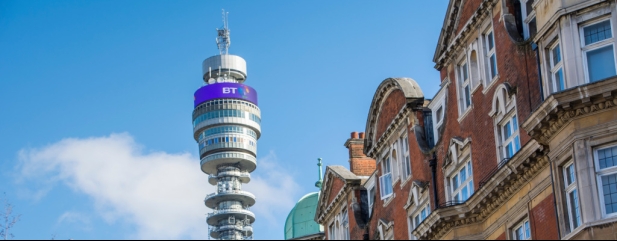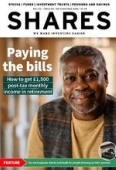Archived article
Please note that tax, investment, pension and ISA rules can change and the information and any views contained in this article may now be inaccurate.
BT and Vodafone are both struggling to dial up growth – here’s why

Here’s the good news for investors in Vodafone (VOD) and BT (BT.A): over the past 20 years the pair have paid out a cumulative 362p combined in dividends per share.
For someone holding 1,000 shares in each company the dividends paid add up to £1,682.90 for Vodafone and £1,992.30 for BT. The bad news is that over the same timeframe the shares have fallen 21.6% and 23.6% in value respectively.
This explains the distinctly unimpressive 20-year total returns (with dividends reinvested) of 84.8% for BT and 126.8% for Vodafone. This is dwarfed by the 357% total return from the FTSE 100 over the same two-decade period.
In early February the two companies reported soggy growth in their financial third quarters, both running until 31 December 2022. So, what has gone so badly wrong for these two telecoms firms and are they just 20th century businesses which don’t really belong in the 21st century?
Something both companies have in common is a lot of debt and that’s putting their ability to sustain dividends, required to compensate shareholders for the lack of any progress in the share price, to the test.
As at the end of 2022 BT’s net debt stood at more than £19 billion and Vodafone’s own net borrowings, at the end of the September, came in at more than £45 billion. This indebtedness reduces the ability of both firms to invest for future growth – BT also must spend large sums upgrading broadband infrastructure through its Openreach division and servicing large, historic pension liabilities.
Numis analyst John Karidis says BT keeps cutting Openreach fibre to the premises prices, in part to hurt rival smaller networks, while at the same time raising consumer prices to pay for Openreach’s fibre to the premises build. Sky is taking advantage of this trend because it can raise its own prices but keep them below BT’s because it doesn’t have to pay for the fibre rollout.
Vodafone’s big debts partly reflect the €18 billion deal to acquire rival Liberty Global’s (LBTY.A:NASDAQ) European businesses in 2019. Using acquisitions as a shortcut to growth hasn’t worked and the architect of that deal, Nick Read, departed at the end of 2022 as the board and shareholders lost patience with his inability to whip the business into shape.
While there was little sign the market was sorry to see Read go, it has left a leadership vacuum and increased the risk of drift in the short term for the business while it searches for a new permanent CEO.
Both Vodafone and BT operate in a highly regulated industry. In Vodafone’s core German market, the introduction of new telecommunications legislation in 2021 made it easier for consumers to cancel contracts and harder for providers to automatically renew them.
All these issues mean that BT and Vodafone have become complex and frustrating investments where the high dividend yields (5.8% and 8.5% respectively) certainly do not compensate for the risks involved. For the tens of thousands of investors holding these stocks, it’s time to consider if they should remain in your portfolio.
Important information:
These articles are provided by Shares magazine which is published by AJ Bell Media, a part of AJ Bell. Shares is not written by AJ Bell.
Shares is provided for your general information and use and is not a personal recommendation to invest. It is not intended to be relied upon by you in making or not making any investment decisions. The investments referred to in these articles will not be suitable for all investors. If in doubt please seek appropriate independent financial advice.
Investors acting on the information in these articles do so at their own risk and AJ Bell Media and its staff do not accept liability for losses suffered by investors as a result of their investment decisions.

 magazine
magazine








